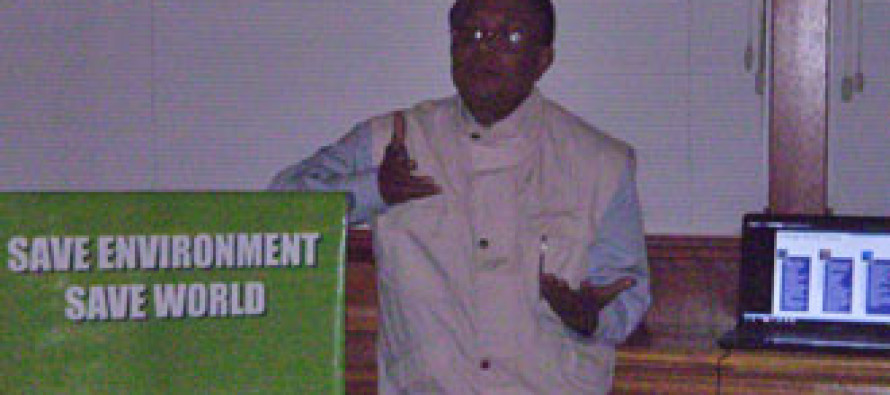Poor Planning Prevents Energy Sector Improvement in Bangladesh

On November 1, 2011 the Bangladesh Environmental Network (BEN) Canberra Chapter invited Energy Expert Engineer Khondkar A Saleque (Saleque Sufi) to an environmental discussion meeting held at the Bangladesh High Commission in Canberra where Engr Saleque informed to the participants that energy sector failed to improve in Bangladesh due to inappropriate strategy, poor planning and lack of professional energy sector management. He said that successive Government failed to develop state owned energy enterprises as professional entity to plan, develop and lead own energy resources exploration and exploitation. Quality professionals making admirable contributions were ignored and non professionals occupying senior positions created unhealthy environment. This caused serious brain drain of competent professionals. Policy makers did not take any due note of this. New professionals were either not created or trained appropriately, as a result of this most of the state owned enterprises have become incapable to provide optimum services. Exploration of own resources and exploitation have now become almost exclusively dependent on Foreign Companies.
Responding to a question, Engr Saleque noted that the conflicting ideas and opinions of Government policy makers and a section of intelligentsia is also impeding exploration of own coal and petroleum resources in Bangladesh. He suggested that conflicting parties must sit across discussion table and short out differences. If all have sense of patriotism then it must not be impossible to form a national consensus on exploration and exploitation of all natural resources in the most economic and environment friendly manner. Engr Saleque believes that all Governments, after 1975, instead of developing power and energy sector on professional lines politicized the management causing its erosion of values and capacities.
In his presentation, Engr Saleque referred to the Bangladesh Government’s 6th Five Year Plan, which stated that (i) acute energy crisis in Bangladesh has taken dimension of a sectoral “emergency” (ii) the annual loss of production and income from power outage could exceed 0.5% of GDP per year, (iii) the availability of domestic primary fuel supply is getting scarce forcing shutting down of fertilizer factories, rationing gas supply to domestic use and CNG. This plan also acknowledged that poor power and energy price leading to mushrooming growth of energy inefficient small and medium industries; inadequate fund for maintenance of power infrastructure; and inefficient management in electricity generation, distribution and sales.
Engr Saleque proposed the following measures for confronting the prevailing and emerging energy crisis: (i) Explore and exploit high Quality high heating value, low sulfur low ash coal resources applying modern technique ensuring all environmental and social impacts management; (ii) Resettlement and rehabilitation of community and regeneration of income must get priority; (iii) Policy makers should invite activists and try to resolve the impasse through discussions; (iv) Abandon ideas of LNG import and coal import for technical and commercial constraints [Bangladesh Economy cannot support import of expensive fuel] (v) Find one or more strategic partners for BAPEX, GTCL to build their capacity and resources; (vi) Explore all options of renewable energy generation [solar, wind, Energy from waste, bio fuel]; (vii) Take all measures to reduce and eliminate System loss of power and gas; (viii) Recruit fresh professionals and arrange to create fresh incentives for bright young professionals work in Petrobangla companies; (ix) Make Power and energy price market oriented through small increases step by step; (x) Place right people in the right place to ensure accountability and transparency; (xi) a brief of structure and operation of Production Sharing Contracts [PSC] must be let out as public documents to remove opportunity of speculations in media and talk shows which confuse people.
Engineer Rashedul Alam presided the meeting which was attended by Dr Ezaz al Mamun, Mr Ziaul Haq Bablu, Rasidulul Alam, Dr Helal Ahmed, Mr Newton Mohury, Mr Enamul Haq Bhuyian (Mukul), Rebecca Hortidge (Climate Action), Kamrul Ahsan Khan and Dr Ajoy Kar.







